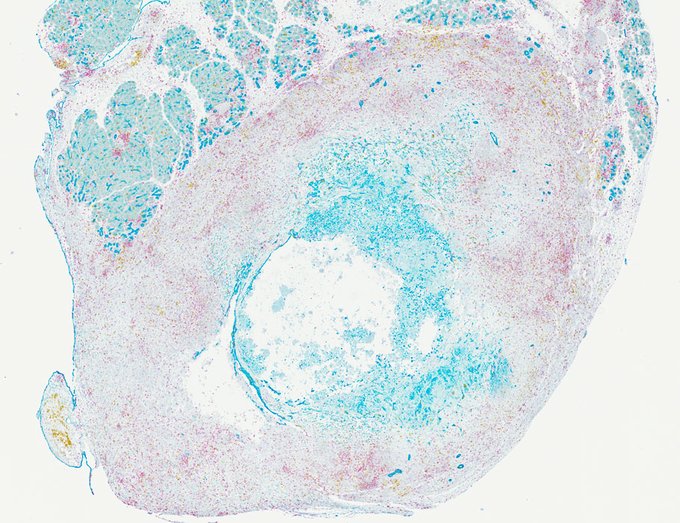New drug combination eradicates treatment-resistant pancreatic tumors in mice
Immunotherapies to treat pancreatic cancer—a disease with a nearly 90 percent mortality rate—have been the subject of intensive research efforts in recent years, largely because they have succeeded where other treatment approaches have failed. New developments in mRNA vaccines, immune-enhancing therapies, and combination immunotherapy-chemotherapy regimens have marked a new era in pancreatic cancer treatment. But still, for many patients, nothing seems to work.
 Now, at the University of Pennsylvania, former Damon Runyon Physician-Scientist Max. M. Wattenberg, MD, and his mentor, former Damon Runyon-Rachleff Innovator Gregory L. Beatty, MD, PhD, have discovered a drug combination that may be effective against pancreatic tumors that resist conventional immunotherapies. Excitingly, the combination was able to eradicate such tumors in mouse models, indicating a promising new avenue for pancreatic cancer patients.
Now, at the University of Pennsylvania, former Damon Runyon Physician-Scientist Max. M. Wattenberg, MD, and his mentor, former Damon Runyon-Rachleff Innovator Gregory L. Beatty, MD, PhD, have discovered a drug combination that may be effective against pancreatic tumors that resist conventional immunotherapies. Excitingly, the combination was able to eradicate such tumors in mouse models, indicating a promising new avenue for pancreatic cancer patients.
The two drugs, beta-glucan and CD40 agonist antibody, work to reactivate myeloid cells, essential players in the immune system that are unfortunately susceptible to suppression by the tumor’s environment. Once reinvigorated, myeloid cells do not themselves kill tumor cells, but they do recruit other immune cells, known as macrophages, to launch an anti-tumor attack. In this way, myeloid cells are like the watchdogs of the immune system, temporarily lulled to sleep by the tumor but awoken to start barking by the right combination of drugs.
Encouraged by their success in mouse models, the team is now preparing to test the beta-glucan/C40 agonist combination in clinical trials.
This research was published in Science Immunology.
